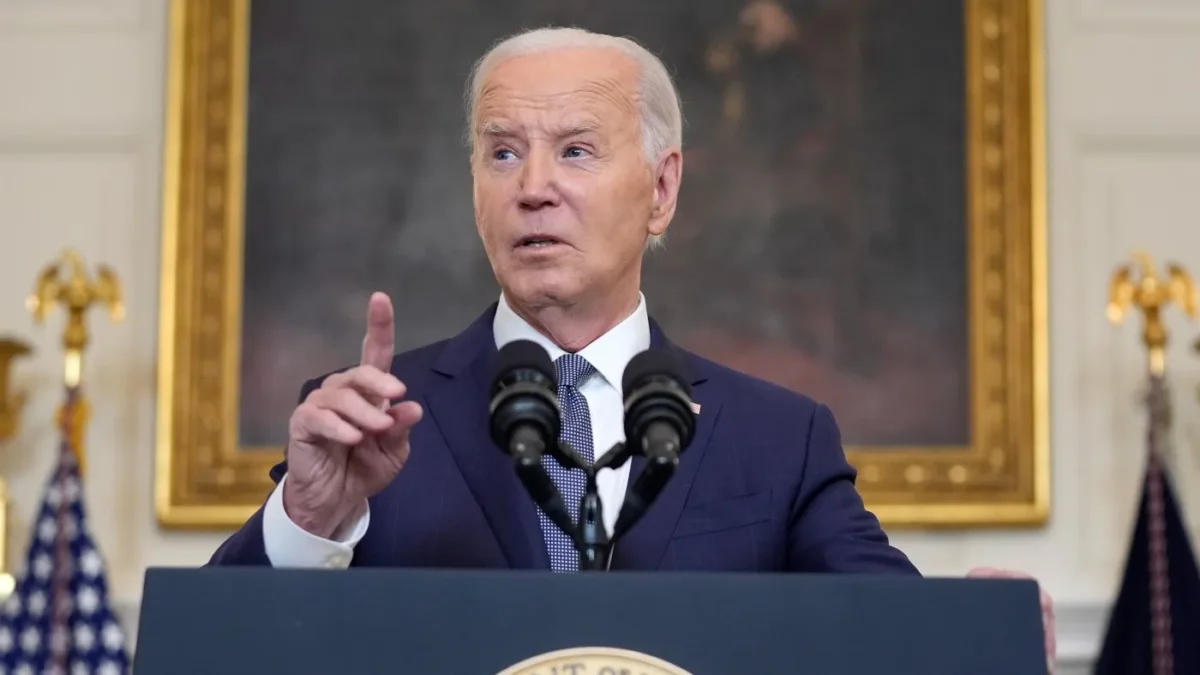In a significant development, President Joe Biden announced on Friday his endorsement of an Israeli proposal aimed at establishing a permanent ceasefire in Gaza. This move follows seven months of intense Israeli military operations against Hamas, during which the group has been significantly weakened, according to Biden.
“It’s time for this war to end, for the day after to begin,” Biden declared from the State Dining Room at the White House. He emphasized that Hamas is no longer in a position to launch significant attacks against Israel akin to those of October 7, marking a critical juncture in the conflict.
Table of Contents
Details of the Israeli Proposal
The President described the proposal as a “comprehensive new plan,” intended to lead to an “enduring ceasefire.” However, the specifics of the plan remain under wraps, with Israeli Prime Minister Benjamin Netanyahu yet to publicly address the proposal or clarify how it differs from previous ceasefire attempts. Netanyahu has consistently maintained that Israel’s goal is the complete eradication of Hamas.
“This is truly a decisive moment,” Biden stated. “Hamas says it wants a ceasefire. This deal is an opportunity to prove whether they really mean it.”
Historical Challenges and Contradictions
Despite Biden’s optimism, there are significant hurdles to overcome. Historically, Hamas has rejected ceasefire proposals, insisting that all hostilities must cease before any agreements or hostage releases can be discussed. Furthermore, Netanyahu has previously contradicted Biden’s statements on the conflict, underscoring the complexities of the situation.
Domestic and International Pressures
Domestically, Biden faces mounting pressure regarding his administration’s stance on the Israeli military campaign in Gaza, particularly following the latest assaults in Rafah. The protracted conflict, which has resulted in over 36,000 fatalities, has sparked widespread protests on American college campuses and city streets, even alienating some of Biden’s supporters.
Earlier this week, Israel’s national security adviser predicted that the military operations could continue until the end of the year. This forecast comes amidst increasing global calls to scale back the offensive, particularly after the International Court of Justice (ICJ), a United Nations entity, ruled that Israel must cease its operations in Rafah. Despite the ruling, the ICJ lacks the enforcement power to compel Israel to comply.
Recent Attacks and Humanitarian Concerns
Biden’s comments on Friday were his first since an Israeli airstrike and subsequent fire on Sunday resulted in 45 deaths, including children, and left 249 wounded in a displaced persons camp, according to health officials in Gaza. A New York Times analysis confirmed that U.S.-made bombs were used in the strike, prompting challenging questions for the White House about America’s role in the escalating death toll.
Phased Approach of the CeaseFire Plan
In detail, Biden outlined a phased approach to the Israeli proposal, beginning with a six-week ceasefire. This initial phase includes the withdrawal of Israeli forces from densely populated areas of Gaza and an exchange of elderly and female hostages held by Hamas for hundreds of Palestinian detainees. Biden acknowledged that several details remain to be negotiated before proceeding to subsequent phases.
In the following phase, Israeli forces would completely withdraw from Gaza, conditional upon the release of all remaining hostages, including male soldiers. “As long as Hamas lives up to its commitments, a temporary ceasefire will transform into, in the words of the Israeli proposal, a cessation of hostilities permanently,” Biden explained.
Future Prospects for Peace
The proposal represents a potential pathway to peace, but its success hinges on mutual adherence to the outlined commitments. Biden’s endorsement underscores a pivotal moment in U.S. foreign policy and reflects the urgency of addressing the humanitarian crisis in Gaza while balancing complex geopolitical dynamics.
As President Biden spends the weekend in Rehoboth Beach, Delaware, his administration continues to navigate the intricate landscape of Middle Eastern politics. The coming days and weeks will reveal whether this new proposal can indeed pave the way for lasting peace in Gaza.

3 Comments
Pingback: Israel's ‘Roadmap to an Enduring Ceasefire': The 3-Phase “comprehensive new plan” - INPAC Times
Pingback: US President calls on Qatar to exert pressure on Hamas to consent to Israel's proposed cease-fire
Pingback: Japan's Diplomatic Shuffle: Palestine Invited to Nagasaki, Israel Asked to Ceasefire